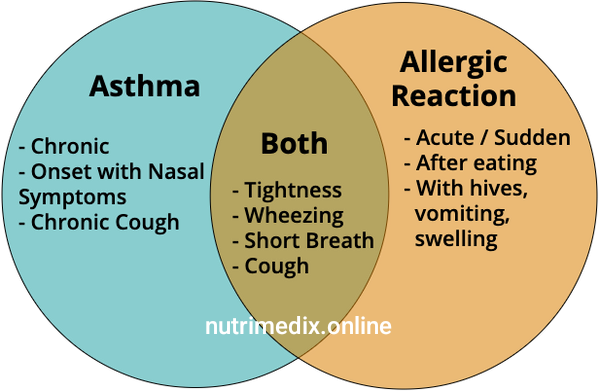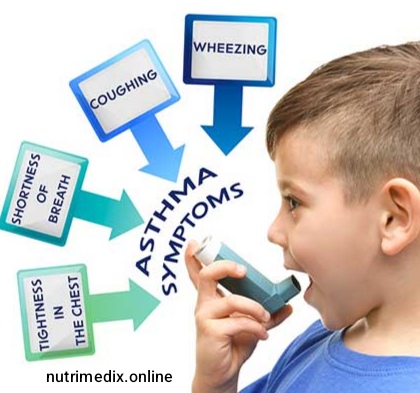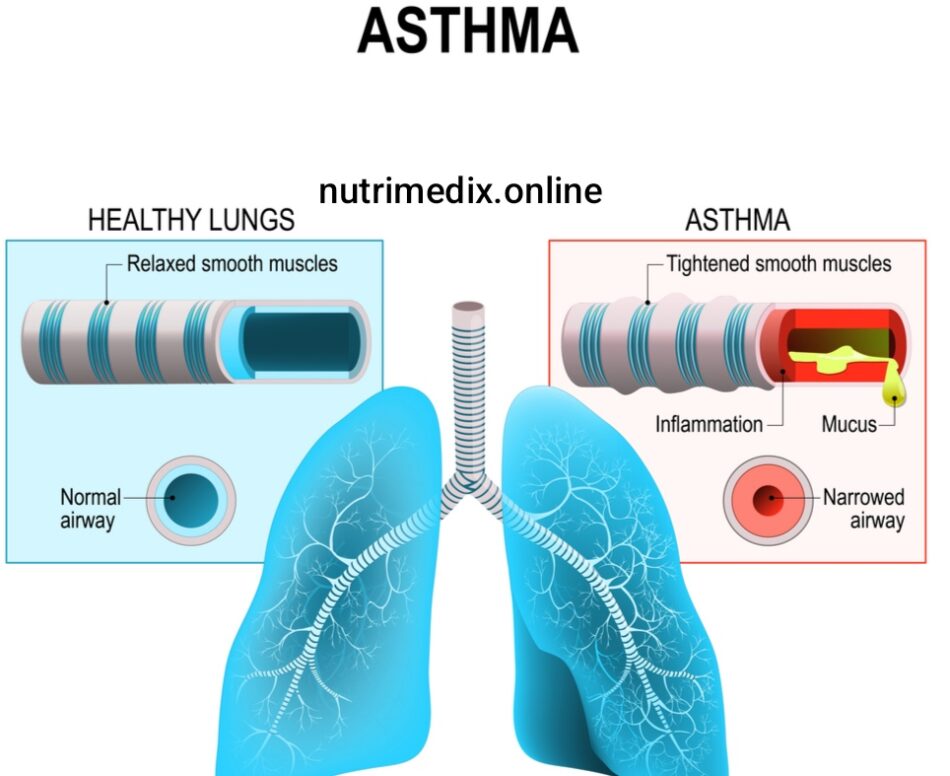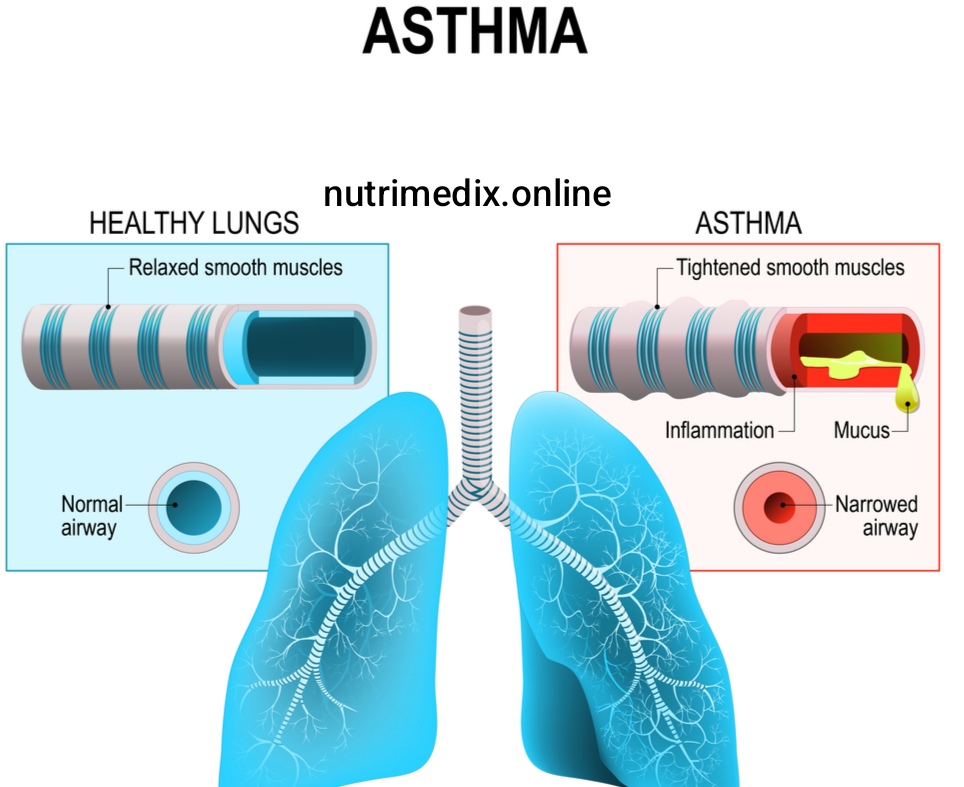Understanding Asthma and Allergies, its Causes, Symptoms, Treatment ,Management, Statistics and 5 Prevention Tips
What is Asthma and Allergies?
Asthma and allergies are often closely linked. Asthma affects the bronchial tubes, which are the airways that help carry air in and out of the lungs. One common type is allergic asthma, which is triggered by allergens like pollen or mold. According to the American Academy of Allergy, Asthma, and Immunology, many of the 25 million Americans who have asthma also deal with allergies, leading to what’s known as allergic asthma.
Typically, air enters the body through the nose and travels down the windpipe into the bronchial tubes. At the ends of these tubes are small air sacs called alveoli, which allow oxygen to enter the bloodstream while removing carbon dioxide. When breathing is normal, the muscles around the airways are relaxed, allowing air to flow easily.
However, during an asthma attack, three key things happen that restrict airflow:
- Bronchospasm: The muscles around the airways tighten, narrowing them.
- Inflammation: The lining of the airways becomes swollen.
- Mucus production: The cells lining the airways produce more mucus, which is thicker than usual.
These changes make it harder for air to move in and out of the lungs, leaving those with asthma feeling short of breath and struggling to get enough air. This combination of factors makes breathing significantly more difficult during an asthma episode.
Asthma occurs when the airways become narrowed, making it more difficult for air to move in and out of the lungs. This often leads to the feeling of not getting enough air, making breathing more difficult.

Common Symptoms:
Asthma symptoms occur when the airways tighten, swell, and produce excess mucus. The frequency and severity of symptoms vary from person to person. Some may experience mild symptoms occasionally, while others may deal with them more regularly. The most common symptoms include:
- Persistent coughing, particularly at night. https://nutrimedix.online/cold-vs-flu-symptoms-treatment-prevention/
- Shortness of breath.
- Wheezing (a whistling sound when breathing).
- Chest tightness, pain, or pressure.
Not everyone with asthma has the same symptoms, and the severity can differ from one episode to the next. While mild episodes are more common and usually resolve on their own or with minimal intervention, severe episodes can be life-threatening and require immediate medical attention.
Early Warning Signs of an Asthma Attack:
Certain early signs may indicate that a person’s asthma is worsening, such as:
- Frequent coughing, especially at night.
- Shortness of breath or easily becoming breathless.
- Increased fatigue or difficulty exercising, along with symptoms like wheezing.
- Difficulty sleeping or feeling like you’re coming down with a cold or other respiratory infection.
Recognizing these signs early and seeking treatment can help prevent a more severe asthma attack.
Causes and Triggers:
Asthma can be triggered by various factors, often referred to as “triggers.” These include:
- Respiratory infections, such as colds or the flu.
- Physical exercise (though with proper management, people with asthma can still exercise safely).
- Environmental factors like cold weather or air pollution.
- Exposure to allergens like dust mites, pollen, pet dander, or mold.
- Smoke from tobacco or other sources.
- Strong odors or chemicals.
- Emotional reactions, including stress or intense laughter.

Diagnosing Asthma:
Doctors typically diagnose asthma through a combination of medical history, physical examination, and lung function tests such as:
- Chest X-rays: To assess lung condition.
- Pulmonary function tests (spirometry): To measure how well the lungs can take in and exhale air.
- Peak flow meter tests: To measure how fast you can exhale.
Additional tests might include allergy tests or other imaging to rule out related conditions.
Asthma Treatment:
Managing asthma involves a combination of avoiding triggers, taking medication, and monitoring symptoms. Medications used to treat asthma include:
- Bronchodilators: These relax the muscles around the airways, making breathing easier and helping to clear mucus.
- Anti-inflammatories: Medications like inhaled corticosteroids reduce swelling in the airways and make them less sensitive to triggers.
- Leukotriene modifiers: These reduce the effects of chemicals in the body that cause airway constriction and inflammation.
- Immunomodulators: These are used for severe asthma, reducing allergic reactions by targeting the body’s immune response.
Preventions :
To help prevent asthma attacks and manage symptoms, here are some key tips:
- Avoid Triggers: Identify and minimize exposure to common asthma triggers like pollen, dust mites, mold, and smoke.
- Keep a Clean Environment: Regularly clean your home to reduce allergens and dust. Use allergy-proof covers on bedding.
- Manage Allergies: If allergic asthma is an issue, use appropriate medications or treatments like allergy shots.
- Take Prescribed Medication: Follow your doctor’s instructions for daily medications and always carry a rescue inhaler.
- Monitor Your Symptoms: Use a peak flow meter to track lung function and catch early warning signs of flare-ups.
- Get Vaccinated: Keep up with flu and pneumonia vaccines to prevent respiratory infections that can worsen asthma.
- Follow an Asthma Action Plan: Work with your doctor to develop and follow a plan for managing symptoms and handling attacks.

By incorporating these strategies, you can help reduce asthma symptoms and maintain better control of the condition.
Statistics
Over 27 million people in the U.S. have asthma. This is equal to about 1 in 12 people. Over 22 million U.S. adults ages 18 and older have asthma. Asthma rates are highest in American Indian or Alaska Native adults in the U.S. Many of the 25 million Americans who have asthma also deal with allergies.
Managing Asthma:
It’s essential to monitor asthma symptoms regularly, using devices like peak flow meters to check lung function. This helps detect early changes and adjust treatment before symptoms worsen. While there’s no cure for asthma, with proper management and treatment, people with asthma can live symptom-free most of the time.
Asthma control relies on a combination of medication, avoiding triggers, and regular monitoring of lung function.

